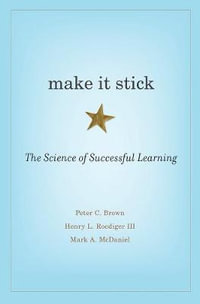Soon after Charles Darwin formulated his theory of evolution, primate cognition became a major area of research. In this book, Michael Tomasello and Josep Call assess the current state of our knowledge about the cognitive skills of non-human primates. They integrate empirical findings on the topic from the beginning of the century to the present, placing this research in theoretical perspective. They begin with an examination of the way primates adapt to their physical world, mostly for the purpose of foraging. The second part of the book looks at primate social knowledge and focuses on the adaptations of primates to their social world for purposes of competition and cooperation. In the third section, the authors construct a general theory of primate cognition, distinguishing the cognition in primates from that of other mammals (human in particular). Their broad-ranging theory provides a guide for future research. Primate Cognition is an enlightening exploration of the cognitive
capacities of our nearest primate relatives and a useful resource for a wide range of researchers and students in psychology, behavioral biology, primatology, and anthropology.
Industry Reviews
""Fin de siécle primatology is an exuberant, contentious, and ambitious discipline. . . . Those who took classes in primatology as few as 5 to 10 years ago would not recognize many of the current issues, a short list of examples being sexual selection, phylogenetic weighting in comparative analyses, gut-brain tradeoffs in the evolution of energy and tissue allocation, and reciprocity and retribution. Primate Cognition is a superb example of this
new, reinvigorated primatology. . . . Tomasello and Call accomplish a meticulous merging of primate behavior, recent insights from cognitive and developmental psychology on the multidimensionality of cognitive
abilities, and a good understanding of primate evolution to critically analyze what is and is not yet known about cognition in nonhuman primates."--American Journal of Human Biology
"[The authors] divide the volume into fourteen chapters organized into three parts: Knowledge of the Physical World, Knowledge of the Social World, and A Theory of Primate Cognition, which summarizes their conclusions and briefly reviews human cognitive development. The book includes an introduction to the Order Primates (as well as an appendix on their taxonomy) and a brief history of studies of primate cognition."--The Quarterly Review of Biology
"This book is a careful and critical review of the existing literature on the cognitive capacities of primates and other mammals and, at the same time, is a launching platform for a very important theory on what is unique for primates with respect to other mammals and what is unique for human beings with respect to nonhuman primates. . . . What makes this book appealing to any kind of reader and extremely useful as an educational tool is the way in which the
material is organized, critically described, and summarized in useful tables and summaries. . . . In addition, the book has 50 pages of references, an authors' index, a species index, and a subject
index, as well as a multitude of figures and photographs . . . I strongly recommend this marvellous book to ethologists, animal psychologists, developmental psychologists, cognitive scientists, and anyone just interested in primates."--The Quarterly Journal of Experimental Psychology
""Fin de siécle primatology is an exuberant, contentious, and ambitious discipline. . . . Those who took classes in primatology as few as 5 to 10 years ago would not recognize many of the current issues, a short list of examples being sexual selection, phylogenetic weighting in comparative analyses, gut-brain tradeoffs in the evolution of energy and tissue allocation, and reciprocity and retribution. Primate Cognition is a superb example of this
new, reinvigorated primatology. . . . Tomasello and Call accomplish a meticulous merging of primate behavior, recent insights from cognitive and developmental psychology on the multidimensionality of cognitive
abilities, and a good understanding of primate evolution to critically analyze what is and is not yet known about cognition in nonhuman primates."--American Journal of Human Biology
"[The authors] divide the volume into fourteen chapters organized into three parts: Knowledge of the Physical World, Knowledge of the Social World, and A Theory of Primate Cognition, which summarizes their conclusions and briefly reviews human cognitive development. The book includes an introduction to the Order Primates (as well as an appendix on their taxonomy) and a brief history of studies of primate cognition."--The Quarterly Review of Biology
"This book is a careful and critical review of the existing literature on the cognitive capacities of primates and other mammals and, at the same time, is a launching platform for a very important theory on what is unique for primates with respect to other mammals and what is unique for human beings with respect to nonhuman primates. . . . What makes this book appealing to any kind of reader and extremely useful as an educational tool is the way in which the
material is organized, critically described, and summarized in useful tables and summaries. . . . In addition, the book has 50 pages of references, an authors' index, a species index, and a subject
index, as well as a multitude of figures and photographs . . . I strongly recommend this marvellous book to ethologists, animal psychologists, developmental psychologists, cognitive scientists, and anyone just interested in primates."--The Quarterly Journal of Experimental Psychology
























